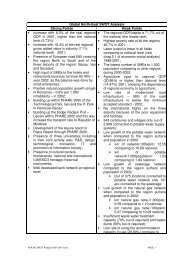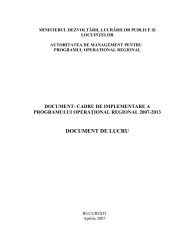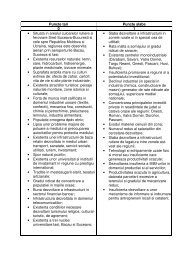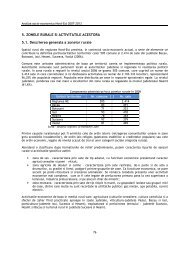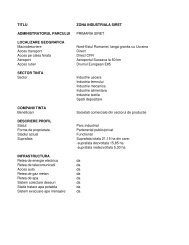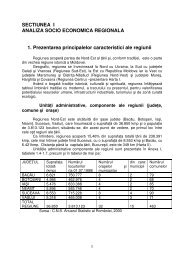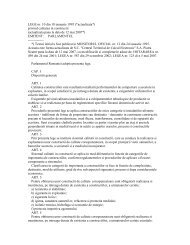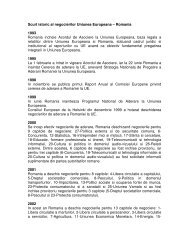EURADA News no. 288
EURADA News no. 288
EURADA News no. 288
Create successful ePaper yourself
Turn your PDF publications into a flip-book with our unique Google optimized e-Paper software.
ANNEX 1 – p. 5<br />
A Mid-term review on Modern SME policy (COM (2007) 592),<br />
adopted in October 2007, takes stock of the progress that the<br />
Commission and the Member States have made in implementing<br />
Modern SME policy. The Communication concludes that SMEs are<br />
<strong>no</strong>w part of most Community policies, like competition, cohesion<br />
policy and research. The Commission has also increased the SME<br />
focus within major EU spending programmes for the period 2007-<br />
2013. The Commission has taken important steps towards<br />
creating a more SME-friendly regulatory environment by<br />
proposing, among others, ten fast-track actions in areas where<br />
such actions are likely to have the greatest impact, such as<br />
statistics and company law.<br />
Member States have made efforts to deliver on the five priority<br />
actions requested by the 2006 Spring European Council, thus<br />
contributing to the implementation of the “Think Small First”<br />
principle throughout the European Union. In particular, the<br />
majority of Member States have established a one-stop-shop for<br />
setting up a company and most of them have reduced the time<br />
required to do so. Many of them have taken measures to develop<br />
entrepreneurial mindsets through education although progress is<br />
relatively slow.<br />
Despite the progress made, more emphasis needs to be put on<br />
SMEs in the context of the next Lisbon cycle 2008-2011 to fully<br />
release their potential to grow and create new jobs. Therefore,<br />
the Commission will prepare a "Small Business Act" for Europe<br />
which will contain eco<strong>no</strong>mically and politically significant initiatives<br />
tailored for SMEs according to the “Think Small First” principle. It<br />
will draw together SME elements present in various policies and<br />
laws, with the aim of reducing further the administrative burden<br />
on SMEs, increasing SMEs participation in EU programmes,<br />
increasing SMEs share in public procurement, improving SME<br />
access to standardisation and reducing obstacles to cross-border<br />
trade thus fostering further in<strong>no</strong>vation and growth.<br />
The Small Business Act was an<strong>no</strong>unced in the Commission<br />
discussion paper for EU Heads of State and Government at the<br />
Lisbon informal summit on 18-19 October. It is also part of the<br />
initiatives an<strong>no</strong>unced in the Communication “A Single Market<br />
review for 21st century Europe” (COM (2007) 724 final).<br />
Main problems identified:<br />
The roughly 23 million small and medium-sized enterprises which<br />
account for 99% of all business and represent two third of total<br />
employment have a strong potential to contribute to the growth<br />
and job creation in the EU. They encounter, however,<br />
proportionally more difficulties than large companies, for example<br />
in terms of coping with regulatory burden, running cross-border<br />
activities and accessing finance, in<strong>no</strong>vation and skills. Also, the EU<br />
does <strong>no</strong>t adequately exploit its entrepreneurial potential. 45% of<br />
Europeans state that they prefer self-employment compared to<br />
61% in the USA. Europe generates fewer start-ups relative to the<br />
USA and after start-up enterprises demonstrate lower expansion<br />
rates. Overall, good progress has been made in implementing<br />
Modern SME policy.



